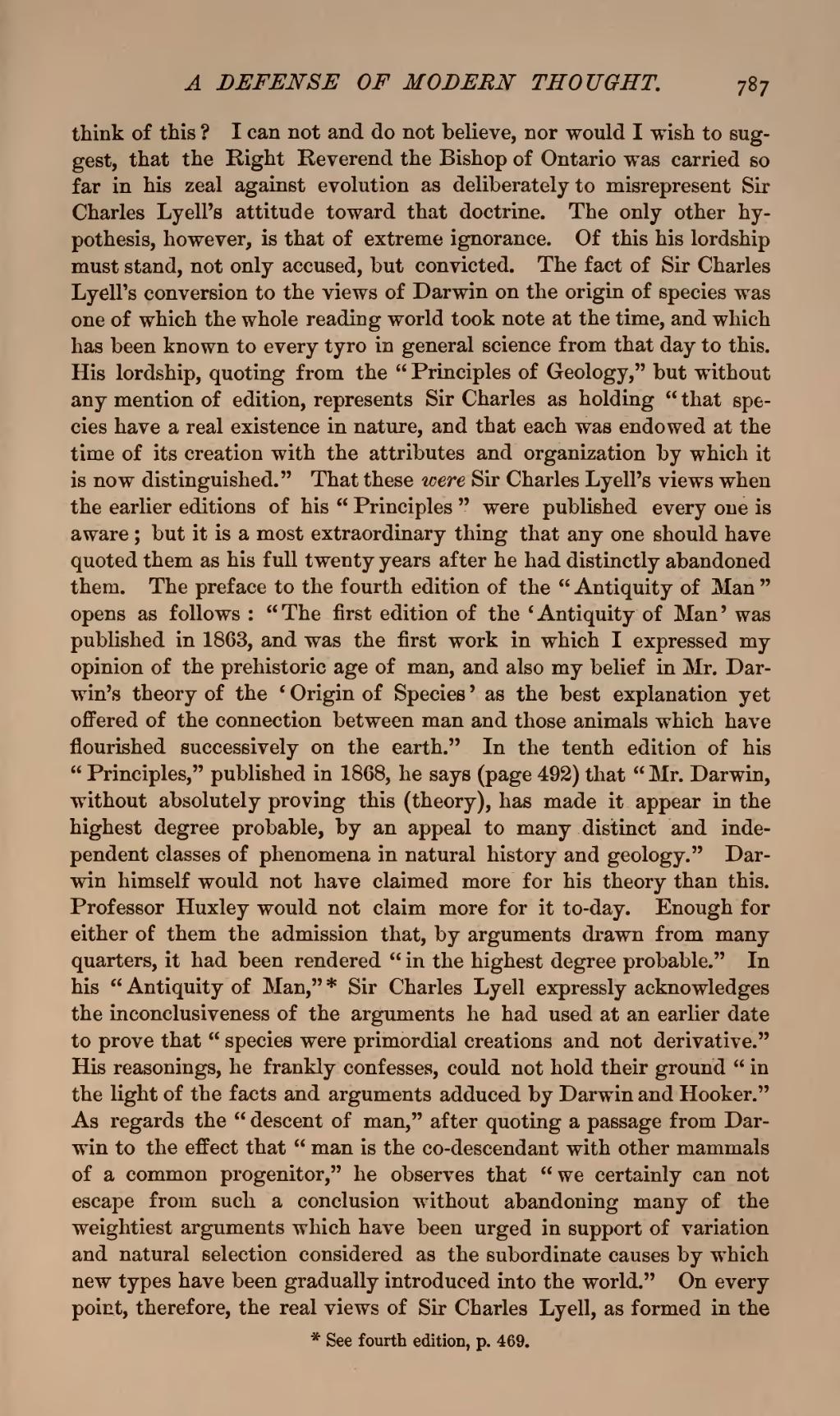think of this? I can not and do not believe, nor would I wish to suggest, that the Right Reverend the Bishop of Ontario was carried so far in his zeal against evolution as deliberately to misrepresent Sir Charles Lyell's attitude toward that doctrine. The only other hypothesis, however, is that of extreme ignorance. Of this his lordship must stand, not only accused, but convicted. The fact of Sir Charles Lyell's conversion to the views of Darwin on the origin of species was one of which the whole reading world took note at the time, and which has been known to every tyro in general science from that day to this. His lordship, quoting from the "Principles of Geology," but without any mention of edition, represents Sir Charles as holding "that species have a real existence in nature, and that each was endowed at the time of its creation with the attributes and organization by which it is now distinguished." That these were Sir Charles Lyell's views when the earlier editions of his "Principles" were published every one is aware; but it is a most extraordinary thing that any one should have quoted them as his full twenty years after he had distinctly abandoned them. The preface to the fourth edition of the "Antiquity of Man" opens as follows: "The first edition of the 'Antiquity of Man' was published in 1863, and was the first work in which I expressed my opinion of the prehistoric age of man, and also my belief in Mr. Darwin's theory of the 'Origin of Species' as the best explanation yet offered of the connection between man and those animals which have flourished successively on the earth." In the tenth edition of his "Principles," published in 1868, he says (page 492) that "Mr. Darwin, without absolutely proving this (theory), has made it appear in the highest degree probable, by an appeal to many distinct and independent classes of phenomena in natural history and geology." Darwin himself would not have claimed more for his theory than this. Professor Huxley would not claim more for it to-day. Enough for either of them the admission that, by arguments drawn from many quarters, it had been rendered "in the highest degree probable." In his "Antiquity of Man,"[1] Sir Charles Lyell expressly acknowledges the inconclusiveness of the arguments he had used at an earlier date to prove that "species were primordial creations and not derivative." His reasonings, he frankly confesses, could not hold their ground "in the light of the facts and arguments adduced by Darwin and Hooker." As regards the "descent of man," after quoting a passage from Darwin to the effect that "man is the co-descendant with other mammals of a common progenitor," he observes that "we certainly can not escape from such a conclusion without abandoning many of the weightiest arguments which have been urged in support of variation and natural selection considered as the subordinate causes by which new types have been gradually introduced into the world." On every point, therefore, the real views of Sir Charles Lyell, as formed in the
- ↑ See fourth edition, p. 469.
